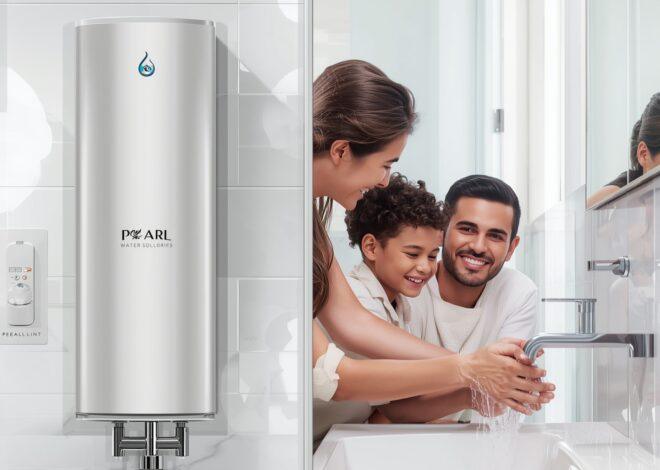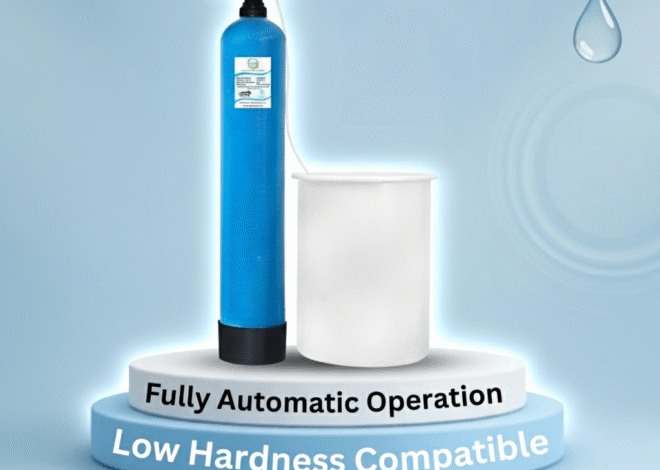Is a Water Softener Eco-Friendly? Myths vs Facts 2025 | Pearl Water Technologies
Confused if water softeners are eco-friendly? Discover myths vs facts about water softener impact on the environment in 2025.
Is a Water Softener Eco-Friendly? Myths vs Facts
Hard water creates scaling, stains, and appliance damage. A water softener solves these issues. But many homeowners ask: Is a water softener eco-friendly?
There are myths about high salt usage, wasted water, and environmental harm. This guide separates myths from facts so you can make a smart choice.
Table of Contents
Introduction: The Eco-Friendly Debate
What Makes Water Hard?
How a Water Softener Works
Common Myths About Water Softeners
Facts About Water Softeners
Eco-Friendly Benefits of Water Softeners
How to Use a Water Softener Responsibly
Alternatives to Traditional Softeners
Cost vs Environmental Impact
Why Eco-Friendly Softeners are the Future
Why Choose Pearl Water Technologies
FAQs
Conclusion
1. Introduction: The Eco-Friendly Debate
The environment matters today more than ever. Every household appliance must be judged on its eco-impact.
A water softener for home is no different. Some believe it harms nature, but modern facts prove otherwise.
2. What Makes Water Hard?
Hard water contains calcium and magnesium. It causes scale deposits, increases energy bills, and reduces appliance lifespan.
3. How a Water Softener Works
A water softener uses ion-exchange resin. It replaces hardness-causing minerals with sodium or potassium.
The result is soft water, eco-friendly cleaning, and efficient water usage.
4. Common Myths About Water Softeners
Myth 1: Water Softeners Waste Too Much Water
Older models consumed excess water. New models save up to 60% during regeneration.
Myth 2: Salt in Softeners Pollutes the Environment
Salt usage is limited and regulated. Eco-models even use potassium chloride.
Myth 3: Soft Water is Harmful for Health
Soft water is safe for daily use, cooking, and bathing.
Myth 4: Water Softeners Consume High Energy
Water softeners use minimal electricity, less than a standard bulb.
Myth 5: Eco-Friendly Alternatives Work Better
Magnetic or electronic devices reduce scaling but do not soften water effectively.
5. Facts About Water Softeners
Fact 1: Modern Softeners Save Water
Efficient systems regenerate only when required.
Fact 2: Salt Usage is Minimal
Average monthly salt cost is ₹400–₹1,000. The environmental impact is low.
Fact 3: Soft Water Protects Appliances and Saves Energy
Reduced scaling means appliances consume less electricity.
Fact 4: Eco-Models Use Advanced Technology
Automatic regeneration saves water, salt, and time.
Fact 5: Recycling Options are Available
Brine water can be reused for gardening or non-drinking purposes.
6. Eco-Friendly Benefits of Water Softeners
Reduced energy bills
Less soap and detergent required
Longer appliance lifespan
Fewer plumbing repairs
Minimal environmental impact
7. How to Use a Water Softener Responsibly
Set regeneration cycles smartly
Use high-purity salt tablets
Maintain your unit regularly
Dispose brine water properly
Choose the right capacity softener
8. Alternatives to Traditional Softeners
Magnetic water conditioners
Electronic descalers
Reverse Osmosis systems
But none offer the full benefits of a water softener.
9. Cost vs Environmental Impact
Installation cost: ₹10,000–₹80,000
Running cost: low salt and minimal water use
Eco-benefit: saves energy, reduces waste, and extends appliance life
10. Why Eco-Friendly Softeners are the Future
Modern softeners are designed with eco-technology. They consume less water, less salt, and save long-term costs.
11. Why Choose Pearl Water Technologies
Pearl Water Technologies provides:
Eco-friendly water softeners for homes and industries
Affordable pricing from ₹10,000 onwards
Expert installation and support
Trusted by thousands of households
👉 Learn more: https://pearlwater.in/water-softeners
12. FAQs
Q1. Are water softeners bad for the environment?
Ans: No, modern eco-models are safe and efficient.
Q2. Do water softeners waste a lot of water?
Ans: No, new models regenerate smartly, saving water.
Q3. Is soft water safe to drink?
Ans: Yes, it is safe for daily use.
Q4. Which type of softener is eco-friendly?
Ans: Automatic softeners with demand-based regeneration.
Q5. Do eco-friendly softeners cost more?
Ans: Slightly, but they save more in the long run.
13. Conclusion
The idea that water softeners are not eco-friendly is a myth. Facts prove they save water, reduce energy use, and protect appliances.
With Pearl Water Technologies, you can enjoy eco-friendly, efficient, and cost-effective water softening solutions.
👉 Visit: https://pearlwater.in/water-softeners

